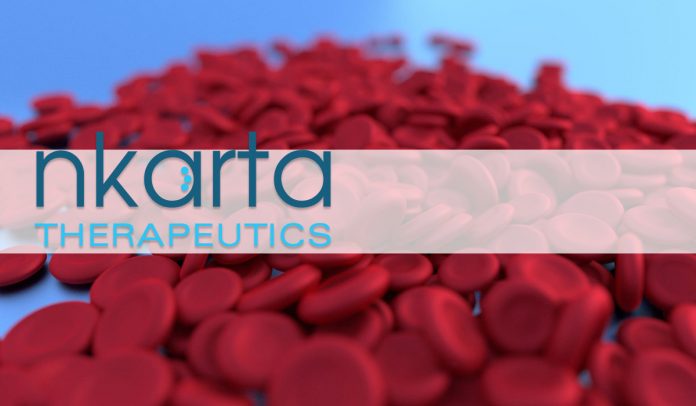Nkarta, Inc., a biopharmaceutical company developing engineered natural killer cell therapies to treat cancer, announced positive preliminary Phase 1 data from independent dose finding studies of its two lead chimeric antigen receptor (CAR) natural killer (NK) cell therapy candidates, NKX101 and NKX019, in two distinct groups of hematologic malignancies.
Paul J. Hastings, President and CEO of Nkarta, said:
We’re excited to see our CAR NK co-lead candidates, NKX101 and NKX019, show such striking early single-agent activity in heavily pretreated patient populations, with an exceptional safety profile without the side effects associated with CAR T cell therapies. These encouraging data across multiple indications further validate Nkarta’s best-in-class NK cell platform, as we seek to transform cancer treatment by bringing together the safety advantages of NK cells with an off-the-shelf modality designed to make the benefits of cell therapy accessible in a community setting.
In the first trial, evaluating NKX101, in relapsed / refractory (r/r) acute myeloid leukemia (AML) and myelodysplastic syndrome (MDS), three of five patients with heavily pre-treated AML who received the higher dose level in a three-dose regimen achieved a complete response (60% CR) with hematologic recovery, with two of the three responses MRD (minimal residual disease) negative. There is currently no standard of care for these patients.
In the second trial, evaluating NKX019, in r/r B cell malignancies, three of six patients treated at the higher dose level in a three-dose regimen showed a complete response (50% CR), including one patient with aggressive diffuse large B cell lymphoma (DLBCL) and one patient with mantle cell lymphoma (MCL). In both trials, no dose limiting toxicity was observed and there were no CAR T like adverse events of any grade.
Nkarta continues to enroll patients in three-dose regimens of 1.5 billion NK cells per dose in the dose finding portions of the NKX101 and NKX019 trials. Data from both programs, including additional follow-up and updates on the higher dose cohorts, will be submitted for presentation at a future medical meeting.
As of April 21, 2022, 21 patients were enrolled and dosed, 17 with a diagnosis of AML and four with MDS. Patients were heavily pre-treated and had received a median of three prior lines of therapy (range of 1 to 12). All patients with AML had received prior treatment with venetoclax. At baseline, the median percentage of blast cells in bone marrow was 27% (range of 3 to 85%).
Marcello Rotta, M.D., Colorado Blood Cancer Institute (CBCI), a part of the Sarah Cannon Cancer Institute at Presbyterian/St. Luke’s Medical Center, and investigator in the NKX101 clinical trial, said:
Relapsed/refractory acute myeloid leukemia (AML) is a historically hard-to-treat disease, and given the lack of effective treatments, people with cancer and those who treat them are faced with few options. Complete responses with corresponding MRD negativity in r/r AML using engineered NK cells, as seen in these preliminary findings, is encouraging. We look forward to leading further investigation to better understand the full potential of a CAR NK approach.

